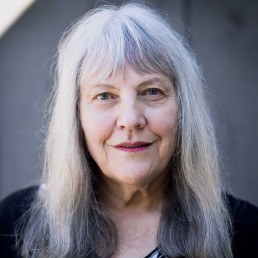June Holley
June has been weaving networks, helping others weave networks and writing about networks for over 40 years. She is currently increasing her capacity to capture learning and innovations from the field and sharing what she discovers through blog posts, occasional virtual sessions and a forthcoming book. Topics she will be focusing on in the coming year include:
- a communications system where weavers can support each other and share information
- a place to share what people are learning from their practice,
- a set of resources drawn from emergent practice,
- a set of practices to address inequities and
- a social media strategy to draw more people around the globe into the network weaving network.
Her Practice
In 1981 June discovered complexity science and became intrigued with the process of transformation. How could communities change in ways that would make them good places for everyone?
For the next two decades, she worked with others in Appalachian Ohio to catalyze cascades of network experimentation, observing and documenting the dynamics that enabled many hundreds of people to start and then expand businesses in rural Appalachia. With these newly minted entrepreneurs, she mobilized dozens of area organizations to collaborate, self-organize and create an environment that would help these businesses innovate, expand and work together to create an effective support system for networked entrepreneurs.
After twenty years as executive director of the Appalachian Center for Economic Networks (ACEnet), she stepped down to devote her energies to helping communities around the globe form system shifting, self-organizing networks by training and supporting network weavers and helping new networks form.
The hundred or so network projects she has advised range from local networks to international ones; included networks focused on a specific sector such as food access or health access as well as cross sector initiatives such network leadership networks; reached from small rural networks with a few dozen participants to massive networks with thousands of international participants including the networkweavers network. All recent projects have had a strong equity focus and a commitment to dismantling racism and hierarchy. June has led hundreds of interactive workshops – many of them virtual – on applying a network approach and authored the Network Weaver Handbook and over 20 blog posts.
Network Support Systems
In the last few years, June has shifted her energies to co-creating the support ecosystem needed so that millions of people around the world have access to network and self-organizing strategies and can use them to rapidly transform systems. This support ecosystem includes:
- a communications system where weavers can support each other and share information
- a place to share what people are learning from their practice,
- a set of resources drawn from emergent practice,
- a set of practices to address inequities and
- a social media strategy to draw more people around the globe into the network weaving network.
The site www.dev.networkweaver.com and a set of related activities became the focus for these efforts. The site includes a space for 51 network weaving consultants to present their skills and offerings to the world; this group is also supported through a monthly community of practice. Since dismantling racism is a key tenet of network weaving, proactive outreach to consultants of color was undertaken and an equity fund set up to compensate BIPOC authors for blog posts and resource development.
The networkweaver blog is now a place for the latest network thinking and practice to be shared. Over 78 contributors have written pieces for the blog.
The final section of the site is the resources section where 49 handouts, worksheets, powerpoints, modules and books are offered, most free of charge, on every aspect of network formation and practice. Although many of these resources are derived from June’s many years of practice, they are increasingly coming from practitioners in the field.
The Network Weaving Facebook group of 2400 people is a place for weavers to share information and get support for challenges.
Blog posts, consultant offerings, events and resources are shared through an enewsletter and a social media system reaching a over 18,000 people (and expanding by about 300 people each month) through Twitter, LinkedIn, scoop.it, Facebook and medium.
Current and Future Directions: Network Weaving Institute
In the four decades that June has been supporting networks, they have shifted from being a fringe phenomenon to being the favored way of responding to our complex world. But networks come in all shapes and sizes and we still have only rough guidance in knowing which kinds of networks are best for different situations and how they can be most effectively structured.
During the coming decade, June is stepping back from major consulting projects to focus on taking all that she and others have learned about networks with transformative capacity and writing a series of articles (which may well morph into a book or set of videos). This will be done collaboratively as much as possible – sharing her writings in google docs open to commenting and/or joint editing.
June will also continue to develop materials and modules that can be used by individuals or networks to deepen their understanding of networks.
In addition to writing June will identify a few high leverage cross network efforts (connecting more environmental networks to networks promoting equity and the need to dismantle racism and hierarchy, for example, or helping national networks provide more support to local self-organizing efforts) and will provide opportunities to explore network potentials at no cost. If you know of two or more networks that could benefit by being connected, please let June know!
Finally, June will occasionally offer 60 minute one time advice and exploration sessions to networks who have a specific challenge they would like to discuss. Visit the Consultation page to set up an appointment
Click here to down load a copy of June’s resume.
For more information, contact June Holley at juneholley@nwinstitute.org .
